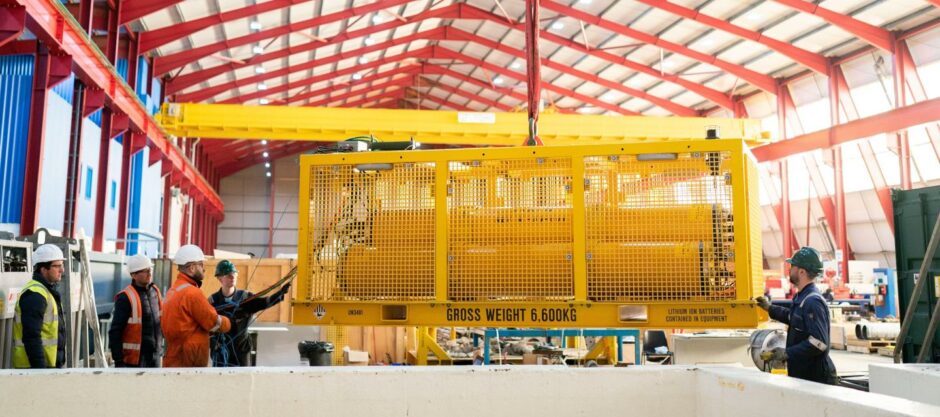 © Supplied by Verlume
© Supplied by Verlume With the theme of ‘Oceans of Opportunity’, the much-anticipated Subsea Expo conference later this month will showcase the cutting-edge technologies and innovations of the sector. The UK’s subsea market produces some of the world’s most advanced technology for harsh and hard to reach environments. As the energy transition accelerates, there will be a significant opportunity for the transfer of this technology into growing clean energy sectors.
At Verlume, we have just changed our company name to emphasise our position as a clean technology leader. This is part of a clear strategy to grow the business at pace, highlighting the capability of our intelligent energy management technologies across various energy sectors including subsea, offshore and onshore.
We have recently demonstrated the potential for cross-sector technology transfer with the shipment of the first commercial Halo subsea energy storage unit. The system is now on its way to the US Navy Wave Energy test site in Hawaii where it will be part of a world-first autonomous offshore power sea power trial in partnership with C-Power, an American wave power developer. On arrival at site in Hawaii, Halo will be fully integrated with C-Power’s SeaRAY Autonomous Offshore Power System.
Our device will provide the seafloor base unit and the payload interfaces for power, data and communications to multiple subsea payloads, ensuring continuous energy availability for remote subsea operations. This is a significant illustration of how expertise from our heritage subsea market can be transferred and help foster further innovation in a diverse range of sectors, in this case for renewables.
It is also a great example of a just transition in action, with a focus on skills and people. Within Verlume, our team of technicians, designers and engineers mostly come from backgrounds in the Oil & Gas supply chain. With experience in equipment such as valves and control systems, you may think this couldn’t be further from the high-tech clean energy management and storage systems that they are designing today.
In booming times of the oil and gas industry, there was inward recruitment from other sectors with the transfer of skills too. We have undertaken a similar process but in reverse, working in collaboration with companies in different sectors, with particular focus on the electric vehicle automotive market in which the UK has world-class experience. Through this process our employees have come to realise that their core skill sets from oil and gas are more widely applicable than they had imagined, whilst also adding a range of new skills to their toolbox.
I very much agree that there will be ‘Oceans of Opportunity’ to come for cross-sector technology transfer within the energy transition, but I also think that these opportunities will be so great that it is not a case of whether people will be left behind in this decarbonisation journey, we simply won’t get there without them.
